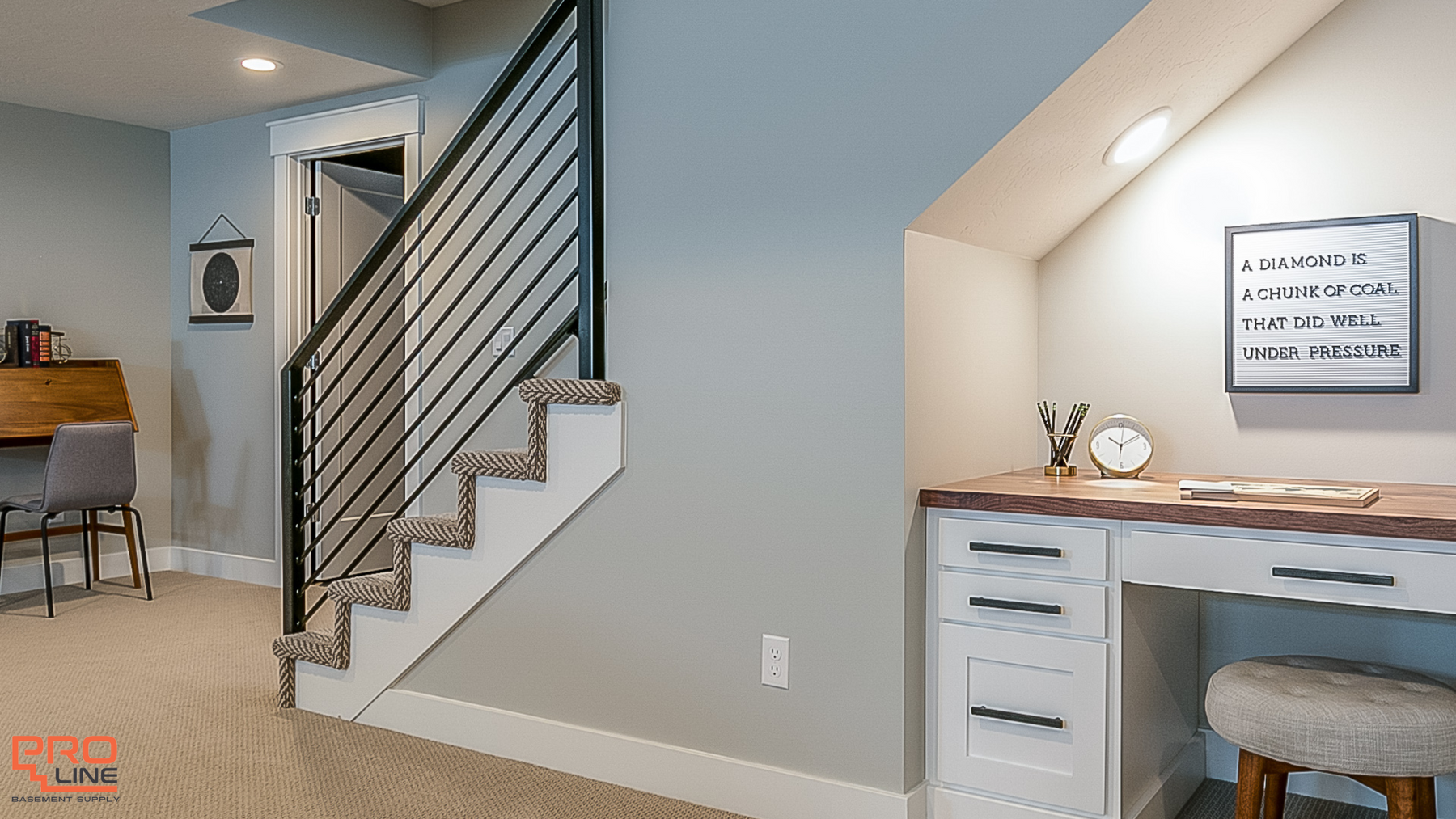
How to Finish a Basement Cement Floor: Creative and Practical Ideas
When it comes to transforming your basement into a functional and inviting space, choosing the right flooring is crucial. Basement flooring requires careful consideration of moisture resistance, durability, and style. Whether you’re planning a cozy family room or a sleek home office, here’s a guide to finishing your basement cement floor that incorporates waterproof solutions and creative ideas.
Step 1: Assess the Condition of Your Basement Floor

Before diving into flooring options, start by evaluating the current state of your cement floor. Look for:
-
Cracks and Uneven Surfaces: Repair any damage to create a smooth foundation.
-
Moisture Levels: Test for excess moisture, as basements are prone to dampness.
-
Drainage and Waterproofing: Ensure the space is well-sealed to prevent water intrusion.
Step 2: Choose the Right Subflooring

A subfloor adds a layer of insulation and creates a barrier between the cement and your finished flooring. For a waterproof basement subfloor, consider these materials:
-
Dimpled Plastic Membranes: These create an air gap to promote airflow and reduce moisture buildup.
-
Foam Panels: Lightweight and insulating, foam subfloor panels are ideal for preventing cold floors.
-
Pressure-Treated Plywood: A durable option that resists moisture and adds structural support.
Step 3: Explore Basement Flooring Options

Here are some of the best flooring ideas for basements, balancing style and practicality:
1. Luxury Vinyl Plank (LVP)
-
Why It Works: Waterproof, durable, and available in various designs mimicking wood or stone.
-
Installation Tip: Choose click-lock systems for easy DIY installation over subflooring.
2. Epoxy Coatings
-
Why It Works: Creates a seamless, waterproof, and stain-resistant surface.
-
Design Ideas: Add color flakes or metallic pigments for a custom look.
3. Engineered Wood
-
Why It Works: A stylish alternative to hardwood, designed to handle basement conditions.
-
Waterproofing Note: Pair with a moisture barrier for added protection.
4. Carpet Tiles
-
Why It Works: Provides warmth and comfort, with easy replacement for damaged sections.
-
Best For: Family rooms and play areas.
5. Ceramic or Porcelain Tile
-
Why It Works: Highly durable and waterproof, ideal for basements prone to spills.
-
Style Tip: Use large-format tiles for a modern, spacious feel.
Step 4: Ensure Proper Waterproofing
Even the best flooring for basements won’t last without adequate waterproofing. Here’s what to do:
-
Seal the Concrete: Apply a waterproof sealant to prevent moisture seepage.
-
Install a Vapor Barrier: Place this layer between the cement and your subfloor for added protection.
-
Improve Drainage: Use a sump pump or French drain system if your basement is prone to flooding.
Step 5: Add Finishing Touches
Once the flooring is installed, consider these final details to enhance your basement:
-
Area Rugs: Add warmth and define zones within the space.
-
Baseboards: Install waterproof baseboards for a polished look and additional protection.
-
Lighting: Brighten the space with overhead and accent lighting to make it feel welcoming.
Final Thoughts
Finishing a basement cement floor involves more than just aesthetics; it’s about creating a durable, moisture-resistant foundation that can stand the test of time. By choosing the right subflooring and exploring waterproof basement flooring options, you can transform your basement into a beautiful, functional space.
For more inspiration and expert advice, explore the latest basement floor ideas tailored to your style and needs. With the right plan in place, your basement can become the highlight of your home!
